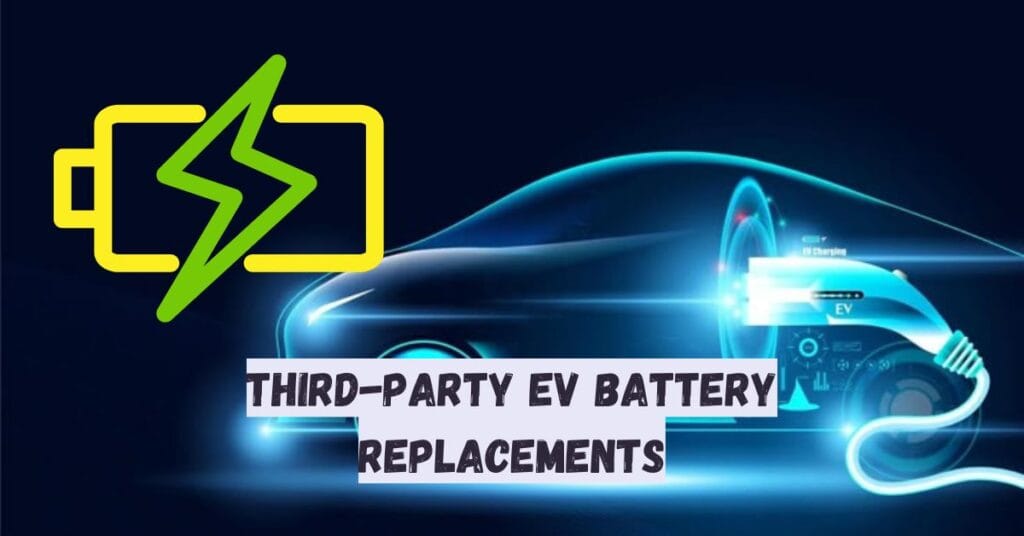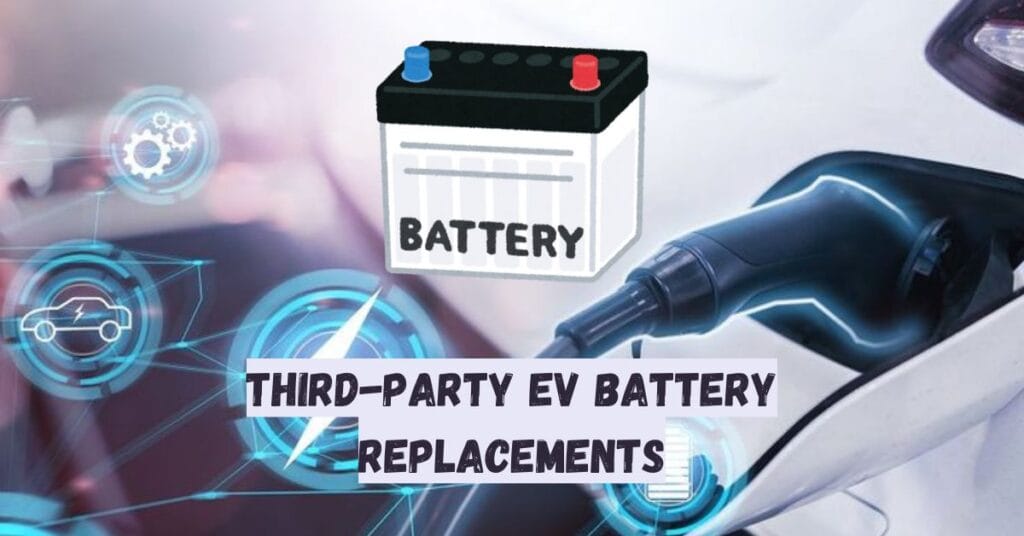Third-Party EV Battery Replacements: If you thinking about Third-Party EV Battery replacements, then some factors that manufacturers ev battery replacements can be expensive. In that case, the Third-Party EV Battery creates more potential for buyers. Let’s know about Third-Party EV Battery Replacements in detail.

Table of Contents
Third-Party EV Battery Replacements

The primary factor of Third-Party EV Battery is often cost effective. On the other hand, OEM (Original Equipment Manufacturer) EV Battery Replacement price range starts from expected ₹3,30,000 to ₹16,50,000 in India. Third-party options are cheaper, and EV ownership is sustainable in the long run, specifically for old vehicles out of warranty.
Factors Affecting the Reliability of Third-Party EV Batteries
The EV owners have to know that third-party EV batteries do not have any warranty. quality of medicines and battery management systems. A third-party battery manufacturer cheaper option and uses lower-grade cells that impact Performance, Range and Lifespan.
The third-party EV battery cannot communicate properly with the car’s computer systems. This can create issues with charging range estimation and overall performance. Proper fit dimension is also critical for Installations.
Third-Party EV Battery: Warranty and Support
Third-party EV Batteries are less expensive than OEM, but there, you have to compromise on several factors. Because Third-Party EV Batteries do not have any kind of warranty period, and their is no customer satisfaction support system from Third-Party EV Battery manufacturers.
Third-Party EV Battery-OEM (Manufacturer) Comparison Table
| Factor | Third-Party Options | OEM (Manufacturer) Options |
|---|---|---|
| Cost | Potentially Lower | Generally Higher |
| Reliability | Variable; Depends on quality & compatibility | Typically High; Designed for the specific vehicle |
| Warranty | Varies; May be shorter or less comprehensive | Usually Standard & Comprehensive |
| Compatibility | Potential for issues: Proper integration is crucial | Guaranteed Compatibility |
| Safety | Relies on third-party standards & testing | Meets OEM safety standards |
| Expertise | Requires careful selection of qualified installers | Typically handled by certified technicians |
| Overall | Potentially Risky if not carefully vetted | Generally More Reliable but Costly |
Conclusion On Third-Party EV Battery Replacements
In conclusion, the decision regarding third-party EV battery replacements in 2025 necessitates careful consideration. While the potential for significant cost savings compared to OEM options is attractive, particularly for older, out-of-warranty EVs, reliability remains a key concern. Factors like component quality, system compatibility, safety standards, and the often-limited warranty and support from third-party EV battery providers must be thoroughly evaluated.
Theion has received third-party validation for its ultra-fast-charging and safe battery anode. Read more about how the battery company's anode is well-suited to electric aviation: https://t.co/JzAwqb4u6S #evdmmag #electricvehicles #manufacturing #theion #battery pic.twitter.com/7EjlHegaP3
— EV Design & Manufacturing (@EV_Design_MFG) June 13, 2024
EV owners should prioritize the rigorous vetting of manufacturers and installers. Ultimately, the choice involves weighing the financial benefits against the inherent risks, with OEM replacements generally offering greater reliability and peace of mind, albeit at a higher cost. As the market evolves, so too will the landscape of third-party EV battery replacements, but in 2025, informed decision-making is crucial.
Bhakti Rawat is a Founder & Writer of InsureMyCar360.com. This site Provides You with Information Related To the Best Auto Insurance Updates & comparisons. 🔗
